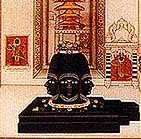PARIS -- Narratives are fluid, based on feel and perspective, passion and statistics and the momentum of the moment. All of which, when molded by different hands, can turn into some cousin of fact.
In January, Rafael Nadal was no longer the equal of Novak Djokovic -- or so we thought -- after the grueling 5-hour, 53-minute Australian Open final. Yet after a physically and mentally draining French Open run, Nadal resurrected this truth: He had never gone anywhere in the first place.
"Don't forget that I've played the last five Grand Slam finals in a row. That's not victory. That's not a title, but that's fantastic results," Nadal said. "I played very bad in Montreal, Cincinnati. Yes, I played a great U.S. Open and I played probably bad in Shanghai and at the end of the season, but in the Davis Cup final I played great.
"You have to find your moments," he said. "With Novak, I say the same to me. It is not possible to be perfect every time, to be 100 percent every tournament. I'm going to keep having chances to win. I produced a lot of chances to win last year, but I lost almost every one."
For more than nine months, Nadal had not suffered a tennis problem as much as he had a Djokovic problem. Djokovic had not only taken Nadal's No. 1 ranking, but he took the Spaniard's air of invincibility on clay by beating him in the finals of the Madrid and Rome 1000 Masters events in 2011. Djokovic had beaten Nadal in seven consecutive finals, three of which were Grand Slams.
"After the U.S. Open, I said I knew what I had to do to win. Now the question is: 'Am I capable of doing that?'" Nadal said. "In Australia, I was not in very good shape, mentally speaking. I could have won, but for mental reasons I had lost. I was not in the best mental status. Now, I'm here. I made it. I did everything I could to win this match."
Since losing the fifth set at the Aussie, Nadal has beaten Djokovic three straight times. Nadal has won seven of eight sets against Djokovic and overcome all of the mental and emotional hurdles that had handcuffed him.
For both men, the Australian Open final created narratives. Djokovic had become indomitable, too tough and too technically skilled for Nadal to combat. Yet the margins were never so great as to say Nadal was not competitive. But after Monday's win, we are reminded that Nadal is the greatest clay-court player of all time -- 52-1 lifetime at Roland Garros -- but he should also be in the conversation of the greatest all-court player as well with Rod Laver, Roger Federer and Bjorn Borg. Nadal has now played in five consecutive Grand Slam finals and has 11 total Slam wins. Federer played in a remarkable 10 straight from the 2005 Wimbledon to the 2007 U.S. Open and has 16 to his name.
Here in Paris, Nadal fought Djokovic into submission. It was the top-ranked Serb who we usually see impose his will on opponents and melt their resolve. But it was Djokovic who looked baffled. He was being pushed farther back and left to right by Nadal. After play resumed following the rainout, Djokovic ripped a forehand into the net, giving Nadal the key break point that turned the match.
In frustrated response, Djokovic batted himself three times in the head with his racket. The margins were thinning even more as a Nadal forehand clipped the tape and fell short. Djokovic flipped a helpless return back that Nadal finished with a backhand crosscourt winner. In three service games as the end neared, Nadal lost three points total on his serve. The match ended when Djokovic, helplessly, double-faulted.
"In my opinion, the conditions were much more favorable for Novak than for me," Nadal said. "At the same time, I'm playing against the best in the world. He played, in my opinion, fantastic [during those] eight games in a row. He didn't have any mistakes. He returned fantastically well. That's true that I lost meters behind the baseline. I wasn't able to push him back like I did at the beginning of the match. He was able to push me back all the time. I felt like I was in a completely negative position almost every time on that period of the match."
The narrative, both immutable yet obviously fluid, said that Nadal lacked the necessary belief to take down Djokovic when the air thinned. That was, obviously, not the case here. But one thing we know, this story of twists and turns and momentum shifts is far from over. Because both men know the other is capable of controlling this rivalry at any given moment.
"Seriously, if I say something wrong about Novak it's probably going to be a big mistake because don't forget that he won in Australia," Nadal said. "He won in Miami, played the semifinals in Indian Wells, losing 7-6 in the third. He played the final in Monte Carlo, the final in Rome and the final here."
Wimbledon is now two weeks away, and Nadal is as formidable as before -- but with the results to fortify the belief. He has played Djokovic 33 times and won 19. The margins between the two men are miniscule. Nadal may have cost himself a major with that missed backhand in Melbourne. Djokovic may have lost a sixth because it rained or because he double-faulted three times to lose games. The point is that the narratives may be fluid, but the greatness of Nadal is not.

No comments:
Post a Comment